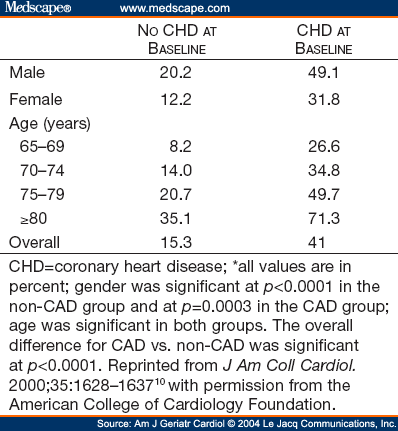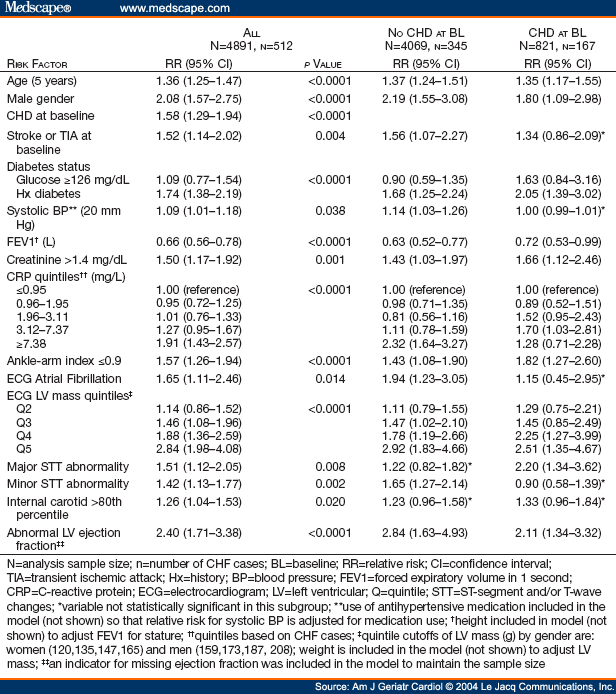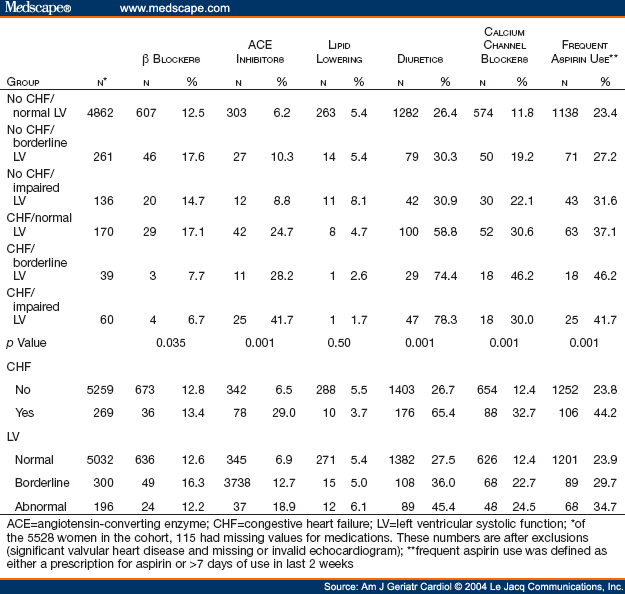Abstract and Introduction
Congestive heart failure in the elderly is recognized as a national public health priority; however, clinical diagnosis can be problematic in elderly persons, many of whom have a history of heart failure in the presence of normal or only minimally decreased ejection fraction. Findings of the Cardiovascular Health Study have underscored the common substrate and predictors underlying heart failure both with decreased ejection fraction and with normal ejection fraction (i.e., diastolic heart failure). Coronary heart disease, systolic blood pressure, and C-reactive protein (a measure of inflammation) are predictive of heart failure independent of ejection fraction. Left atrial size, arguably a marker of the effects of impaired diastolic filling over time, is increased in both systolic and diastolic heart failure of the elderly, as is atrial natriuretic peptide. The outcome of heart failure in elderly persons is poor both for systolic and diastolic heart failure. Moreover, many community-dwelling elderly persons have decreased ejection fraction without heart failure. In these persons the chance of death is similar to that of participants with diastolic heart failure. Since most clinical trials have studied younger patients with predominantly systolic heart failure, the appropriate therapy for heart failure in elderly persons remains to be determined.
Almost 80% of the nearly 5 million people in the United States with congestive heart failure (CHF)[1] are 65 years of age or older. Aging of the population, enhanced susceptibility of elderly hypertensives to CHF,[2] and improved survival after acute myocardial infarction in middle age have increased the number of elderly at risk for CHF.[3,4] While the past several years have been marked by considerable progress in our understanding of heart failure and its management, most research has concentrated on younger patients with heart failure in the presence of decreased systolic function. The applicability of many of these findings to the elderly population, many or most of whom have heart failure in the presence of normal or marginally decreased ejection fraction (EF), is uncertain.
The Cardiovascular Health Study (CHS) is a large, community-based, longitudinal study with a cohort of nearly 6000 people aged ≥ years. CHS was designed to determine the importance of conventional cardiovascular disease risk factors in older adults and to identify new risk factors, particularly those that may be protective or preventable. The intent of this review is to summarize the major findings of CHS pertaining to heart failure and to describe ongoing research on CHF in the CHS.
Am J Geriatr Cardiol. 2004;13(2) © 2004 Le Jacq Communications, Inc.
Cite this: Congestive Heart Failure in the Elderly: The Cardiovascular Health Study - Medscape - Mar 01, 2004.








